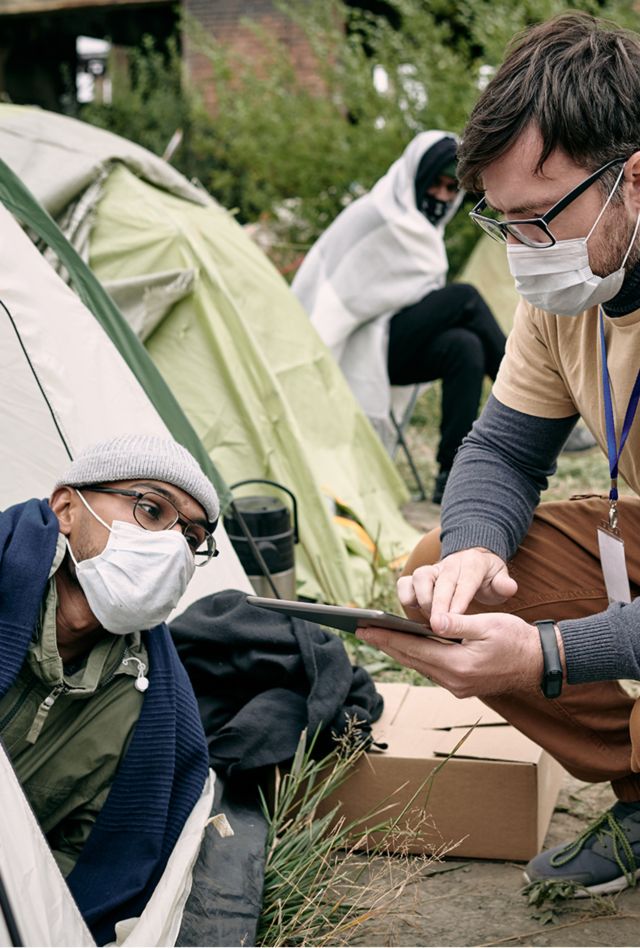ONC LEAP: Aligning Housing and Health Care Project

Problem
AllianceChicago wanted to evaluate a shared, interoperable care plan meant to enhance care coordination for individuals experiencing homelessness.
In 2022, AllianceChicago received funding from the Office of the National Coordinator for Health Information Technology (ONC) Leading Edge Acceleration Projects (LEAP) to address the challenges specified in Special Emphases Notice Area 1: Address Health Equity and Social Determinants of Health (SDOH) Through Innovative, Open-Source Technology Tools, and Electronic Health Records (EHRs).
Specifically, the Aligning Housing and Healthcare (AHAH) project proposed to work with a Chicago-based community health center and a homeless service organization to:
- Understand and characterize the elements of a comprehensive care plan bridging the domains of need and services across both organizations
- Co-design and pilot test a standards-based, open source, interoperable care plan accessible to both organizations and the patients
- Conduct a rigorous evaluation of the pilot approach to understand its impact on the organizations and patients and considerations for scaling across additional service domains and institutions
Solution
NORC led a comprehensive evaluation of the Aligning Housing and Healthcare (AHAH) project.
AllianceChicago subcontracted with NORC to evaluate the AHAH project, aiming to provide insights into the sociotechnical factors involved in implementing a referral app. To assess both technical feasibility and user experience, NORC conducted a comprehensive evaluation from May 2023 through September 2024. The evaluation focused on three key areas:
- Assessing the technical feasibility of leveraging the MCC e-Care Plan and SDOH standards to develop a referral app connecting a community health center with a housing community-based organization
- Identifying the challenges and facilitators of implementing the app
- Describing participant experiences regarding its design, implementation, use, and utility
This approach showcased NORC’s strengths in innovative evaluation methods for health IT solutions and responsiveness to client needs, ultimately providing actionable insights for scaling the referral app to other settings and enhancing service delivery for providers and patients.
Result
Findings from our evaluation informed future scaling of SDOH-based health IT solutions across diverse service domains and institutions.
NORC’s evaluation demonstrated the technical feasibility and practical benefits of implementing a shared electronic care plan between health care and housing organizations. The evaluation identified key challenges related to interoperability and workflow integration and highlighted facilitators that enabled adoption, providing actionable strategies for similar initiatives. Deliverables included a comprehensive evaluation report detailing technical architecture and deployment considerations. Findings informed recommendations for scaling interoperable, SDOH-focused health IT solutions across diverse service domains, supporting national efforts to integrate health and social care. This work lays the foundation for further advancement of interoperable shared electronic care plans.
Related Tags
Project Leads
-
Prashila Dullabh
Vice President & Senior FellowSenior Advisor -
Rina Dhopeshwarkar
Principal Research ScientistProject Director -
Avantika S. Shah
Research ScientistProject Manager










